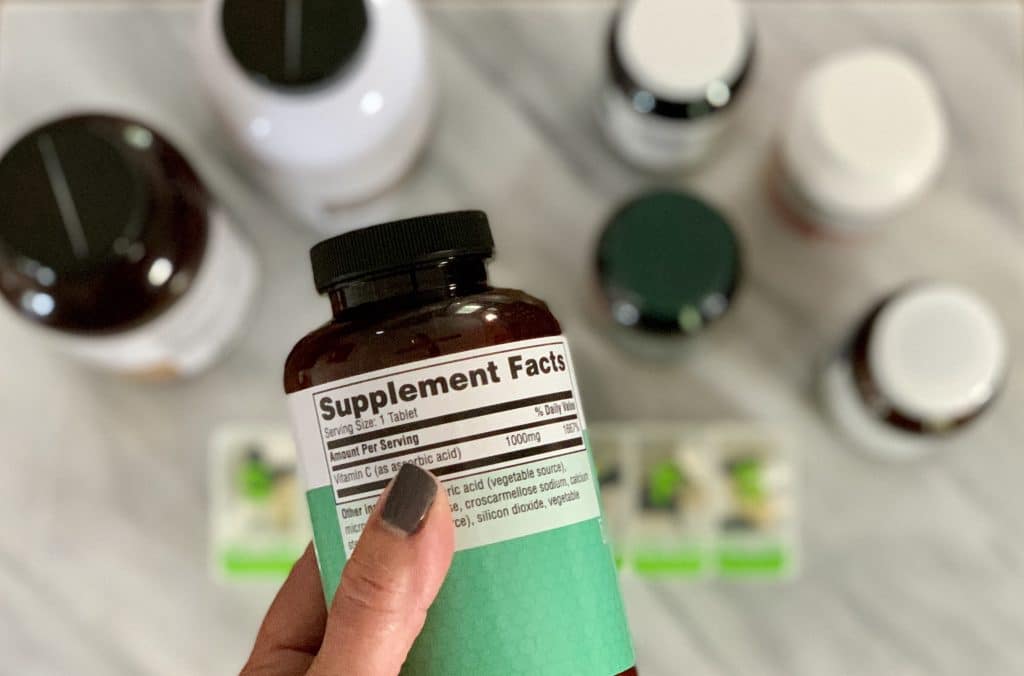Vitamins play a crucial role in maintaining your overall health and well-being. One area where their impact is particularly significant is in the realm of bone and joint health. A proper balance of vitamins helps strengthen bones, maintain flexibility, and support joint function. In this post, you will get an in-depth look into the various vitamins essential for healthy bones and joints, learn about their specific roles, and explore how to ensure that you’re getting enough of these vital nutrients.
Contents
The Role Of Vitamins In Bone & Joint Health

Vitamins are organic compounds that your body needs in small amounts to function optimally. They serve various functions, including supporting metabolism, immune function, and cellular health. Certain vitamins are indispensable for bone and joint health, as they contribute to bone mineralization, calcium absorption, and collagen synthesis. These processes are crucial to maintaining bone density and joint flexibility, which in turn, help prevent age-related conditions such as osteoporosis and arthritis.
In fact, vitamin deficiencies can have a profound impact on bone and joint health. Insufficient levels of specific vitamins can lead to weakened bones, reduced bone density, and compromised joint function. Research has shown that vitamin deficiencies are associated with an increased risk of fractures and other bone-related disorders. By understanding the role of vitamins in bone and joint health, you can make informed decisions about your diet and lifestyle to ensure optimal health in these areas.
Choosing The Right Vitamins for Bone & Joint Health
There are several key vitamins that play vital roles in maintaining bone and joint health. Ensuring an adequate intake of these vitamins can help protect against the development of bone and joint conditions and support overall health. In this section, you will get a chance to explore the most important vitamins for bone and joint health, providing an overview of their specific functions and the risks associated with deficiencies.
Vitamin D

Vitamin D is essential for maintaining strong bones and healthy joints. It plays a crucial role in the absorption of calcium, a mineral that contributes to bone density and strength. Without adequate vitamin D levels, the body cannot efficiently absorb calcium, resulting in weakened bones and an increased risk of fractures. Unfortunately, many people do not get enough vitamin D, especially during the winter months when sunlight exposure is limited.
To ensure that you’re getting sufficient vitamin D, it’s essential to consume foods rich in this nutrient, such as fatty fish, fortified dairy products, and egg yolks. In addition, spending time outdoors in the sun can help your body produce vitamin D naturally. However, balancing sun exposure with proper sun protection is crucial to avoid potential skin damage.
Vitamin K

Vitamin K plays a key role in bone health by contributing to bone mineralization. This process involves the incorporation of minerals like calcium and phosphate into the bone matrix, which is vital for maintaining bone strength and density. Vitamin K also helps to regulate the balance of calcium in the body, which in turn supports the prevention of osteoporosis and other bone-related disorders.
Good sources of vitamin K include leafy green vegetables, such as kale, spinach, and broccoli, as well as certain fermented foods like natto and sauerkraut. Incorporating these foods into your diet can help ensure that you’re getting enough vitamin K to support optimal bone health.
Vitamin C

Vitamin C is an essential nutrient that plays a significant role in joint health. It is required for the synthesis of collagen, a protein that provides structure and flexibility to the joints. By supporting collagen production, vitamin C helps maintain joint integrity and function.
In addition to its role in collagen synthesis, vitamin C also has potent antioxidant properties. This means it can help protect the joints from damage caused by free radicals, which are unstable molecules that can contribute to inflammation and joint disease. Foods rich in vitamin C include citrus fruits, strawberries, bell peppers, and kiwifruit.
B Vitamins

The B vitamins, specifically B12 and B6, also play critical roles in the health of your bones. Vitamin B12, for example, is necessary for the production of red blood cells, which supply oxygen to the bone marrow. Without enough B12, bones can become brittle and prone to fractures.
Vitamin B6, on the other hand, has been shown to have a role in maintaining bone density. It contributes to the metabolism of homocysteine, an amino acid that, when elevated, has been associated with an increased risk of bone fractures. To ensure an adequate intake of B vitamins, consider consuming foods like whole grains, meat, eggs, dairy products, and legumes.
Vitamin E

Vitamin E is a powerful antioxidant that plays a significant role in protecting your body’s cells from damage. This includes the cells that make up your bones and joints. It’s believed that by reducing oxidative stress, Vitamin E can help maintain the integrity of these cells, thereby supporting overall bone and joint health.
Additionally, some research suggests that Vitamin E may have a role in reducing bone loss, though more studies are needed to fully understand this relationship. Foods rich in vitamin E include nuts and seeds, spinach, broccoli, and fortified cereals. Incorporating these into your diet can help ensure you’re getting enough of this potent antioxidant.
Vitamin A

Vitamin A is another essential nutrient for bone health. It’s necessary for the process of bone remodeling, which is the ongoing replacement of old bone tissue with new. This process can be disrupted without adequate vitamin A, potentially leading to weaker bones and an increased risk of fractures. Furthermore, vitamin A can support joint health by contributing to the health and integrity of the membranes that surround the joints.
Good sources of vitamin A include sweet potatoes, carrots, spinach, and kale. Remember, though, that it’s possible to get too much vitamin A, which can be harmful. As such, it’s essential to consume this vitamin in moderation and consult with a healthcare professional if you’re considering taking supplements.
Lifestyle Tips for Better Absorption of Vitamins

Maintaining a balanced diet rich in vitamins and minerals is essential for bone and joint health. However, lifestyle factors also play a significant role in the absorption and utilization of these nutrients. Regular exercise, for instance, can help improve bone density and joint flexibility. It also enhances circulation, which aids in nutrient absorption.
Adequate sunlight exposure is also crucial for the natural production of vitamin D. However, one must balance sun exposure with skin protection to avoid potential harm. Lastly, checking your overall health and consulting with a healthcare professional can help ensure that your body is absorbing and utilizing vitamins effectively.
Ensure Your Getting The Proper Vitamins For Bone And Joint Health!
Vitamins are integral to maintaining bone and joint health. They contribute to processes like bone mineralization, calcium absorption, and collagen synthesis, all vital for maintaining bone density and joint flexibility. Ensuring an adequate intake of these vitamins, whether through a balanced diet or supplements, can help protect against bone and joint conditions. And as always, remember to consult a healthcare professional for personalized advice to ensure optimal health.


